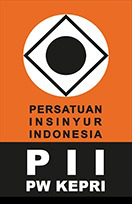A KAJIAN PENGEMBANGAN PEMBERDAYAAN UMKM HALAL YANG BERKELANJUTAN
Keywords:
ukm, Halal, industri halalAbstract
Small and medium enterprises (SMEs) play an important role in most developing countries. In line with emerging markets, this is the right time for the empowerment of SMEs in the Halal Industry as it not only contributes to the growth of the national economy but most significantly is the way forward to create jobs for students who graduate from Halal knowledge. It was found that SMEs can develop, promote and maintain their business in the global halal market if the business excellence model can be adopted as a way to improve their SME business. Halal SMEs should be designed in line with the “business excellence concept” and “benchmark concept”. Halal-entrepreneurs must apply these concepts seriously in the business and market of the halal industry because the sector develops from time to time, especially in the Halal Food Industry, Pharmaceutical and Health Products, Halal Cosmetics, Halal Tourism and Travel, Halal Audit and Consulting
Downloads
References
Abdullah, A. (2010). Measuring TQM implementation: A case study of Malaysian SMEs". Measuring Business Excellence, 14(3), pp.3-15
Adebanjo, D. (2001). TQM and business excellence: Is there really a conflict?. Measuring Business Excellence , 5(3), pp.37-40
Alstete, J. W. (2008). Measurement benchmarks or “real” benchmarking? An examination of current perspectives. Benchmarking: An International Journal, 15(2), pp.178-186
Angell, L.C. and Corbett, L.M. (2009). The quest for business excellence: Evidence from New Zealand's award winners. International Journal of Operations & Production Management, 29(2), pp.170- 199.
Antony, J.P. and Bhattacharyya, S. (2010a). Measuring organizational performance and organizational excellence of SMEs – Part 1: A conceptual framework. Measuring Business Excellence, 14(2), pp.3-11.
Antony, J.P. and Bhattacharyya, S. (2010b). Measuring organizational performance and organizational excellence of SMEs – Part 2: An empirical study on SMEs in India. Measuring Business Excellence, 14(3), pp.42-52
Bilalis, N., Alvizos, E., Tsironis, L. and Wassenhove, L.V. (2007). Benchmarking the competitiveness of industrial sectors: Application in textiles. International Journal of Productivity and Performance Management, 56(7), pp.603-622.
Boys, K., Wilcock, A., Karapetrovic and Aung, M. (2005). Evolution towards excellence: Use of business excellence programs by Canadian organizations. Measuring Business Excellence, 9(4), pp.4- 15.
Broderick, A., Garry, T. and Beasley, M. (2010). The need for adaptive processes of benchmarking. Journal of Business & Industrial Marketing, 25(5), pp. 324-337
Carpinetti, C. R., Luiz, A.M.d. and Alexandre, M. (2002). What to benchmark? A systematic approach and cases. Benchmarking: An International Journal, 9(3), pp.244-255
Cassell, C., Nadin, S. and Older Gray, M. (2001). The use and effectiveness of benchmarking in SMEs. Benchmarking: An International Journal, 8(3), pp. 212-222.
Corredor, P. and Goñi, S. (2011). TQM and performance: Is the relationship so obvious? Journal of Business Research, 64(8), pp.830-838
Dali, N., et al. (2007). Halal Products From The Consumers Perception. An Online Survey. Proceeding of the Islamic Entrepreurship Conference, Kolej Universiti Islam Malaysia
Dar, H., et al. (2013). Global Islamic Finance Report: GIFR 2013, Edbiz Consulting.
Duramah Tuah (2002). Brunei Darussalam nation Building based on Malay Islam Beraja (Malay Islamic Monarchy Philosophy. Negara Brunei Darussalam: Institut Perkhidmatan Awam.
Deuraseh N., Et al. (2020) Empowering Halal SMES For Economic Growth And Sustainability
Hassan, F. (2013). Halal food marketing: dare to win! Malaysia, UiTM Press
Thomson Reuters, Dinar Standard, Pusat Keuangan Internasional Dubai. 2016
Downloads
Published
How to Cite
Issue
Section
License
Copyright (c) 2023 Ahmad Shalihin, Tania Alda, Fadylla Ramadhani, Chindy Elsana R

This work is licensed under a Creative Commons Attribution 4.0 International License.












